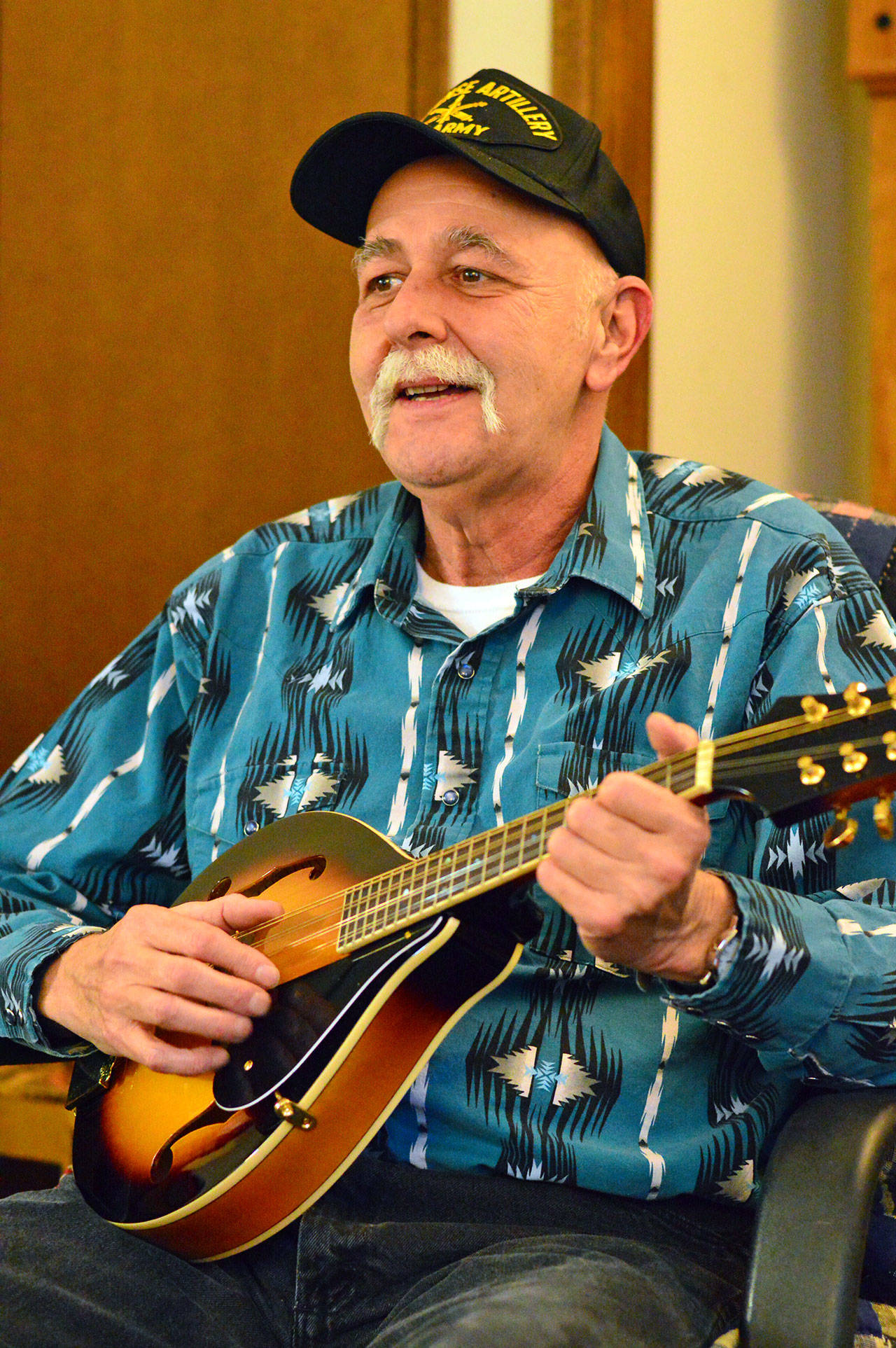PORT HADLOCK — Roger Zingg wasn’t so eager to sit for an interview. Talk to a reporter — a total stranger who walks into his living room — about needing help paying his bills? He agreed to it for two reasons.
One: Zingg wants others to know about the Peninsula Home Fund. Two: He is determined to protect Sheri Couch, his beloved for 28 years now. She suffers from cardiomyopathy, a disease of the heart muscle, and wears a pacemaker. While she receives some Social Security benefits, those aren’t enough to cover their basic living expenses.
The Home Fund, administered by the Olympic Community Action Programs (OlyCAP), provided grants that enabled them to keep their place.
“Keeping a roof over her head,” said Zingg, “is my goal in life.”
At 61 and in ill health, he’s been unable to work. A friend let him know about OlyCAP, where senior housing manager Allison Arthur helped him access a Home Fund grant that made the difference between making rent and having to move to they didn’t know where.
Couch and Zingg recall the night they met: She beheld him across the room at the Sea Galley, which used to be near the Union Wharf in Port Townsend. Next thing she knew, she felt a tap on her shoulder and heard his deep voice asking, “Would you like to dance?”
The pair has been through plenty since then. They are opposites, said she.
“We just clicked,” said he.
Couch added that Zingg can be bull-headed — but “he is a great person, and a very hard worker.”
When they first became a couple, Zingg was driving trucks all over the Lower 48 states. He’d started as a shop hand, then taught himself to pilot the 18-wheelers.
He’s also worked as a tire tester, freight hauler and concrete-mixer operator; he served in the U.S. Army, cared for his ailing grandfather and worked at Port Townsend Paper. The best job he ever had, Zingg said, was being a “can-do-it-all” park aide at Fort Flagler State Park. His family goes back five generations in Jefferson County, so he knows the history of this neck of the woods. At the park, he met people who were hungry to hear about that history.
But then Zingg became ill. His body would shake, and his throat would tighten. Zingg has since found that he suffers from post-traumatic stress disorder. It stems from events that happened during his youth; that is about all he can say.
“There’s no rhyme or reason” to his body’s reactions, or to when and where they will rise up.
At 15, Zingg said, he sought to take control of his life. With help from a high school guidance counselor, he requested placement in a foster home. He went to live with a family in Oregon for a while.
Zingg has since moved around the country, on his own until he met Couch in 1990.
“Asking for help was not on his radar … He’s more the kind to pitch in and help others in need,” said OlyCAP’s Arthur.
During his conversation with this reporter, Zingg nervously rubbed his forehead; pain showed in his eyes. He forged on because, he said, he hopes people who are struggling like he has can receive a hand from the Home Fund.
Just as important: He wants to acknowledge the social workers who have been there for him.
“OlyCAP and DSHS [the state Department of Social and Health Services] took ahold of the reins. I had no idea,” he said.
“I’m really grateful for those folks.”
Now Zingg is waiting to hear whether he’ll receive disability benefits. “It’s a long, drawn-out process,” he said. Then, in his characteristic non-complaining way, he changed the subject.
“We’ve got some good friends,” Zingg said, who’ve shown Couch and him empathy and generosity. These friends do their regular grocery shopping and, without being asked, show up at his front door with provisions to share. A turkey arrived just in time for Thanksgiving.
The landlord has also been helpful, patient and willing to work with OlyCAP, Zingg said.
He and Couch are hoping for better times in 2020. Meantime, in their living room, there are two healing agents: art and music.
Zingg does beadwork, fashioning colorful necklaces of delicate shells and turquoise.
“People like my designs,” he said. So how did he learn to do this?
“I just did it,” Zingg said.
Nearby is his mandolin. As soon as it’s in his arms, he’s smiling shyly.
“I love music,” he said. “I want it to be part of my life.”
________
Diane Urbani de la Paz, a former features editor for the Peninsula Daily News, is a freelance writer living in Port Townsend.

